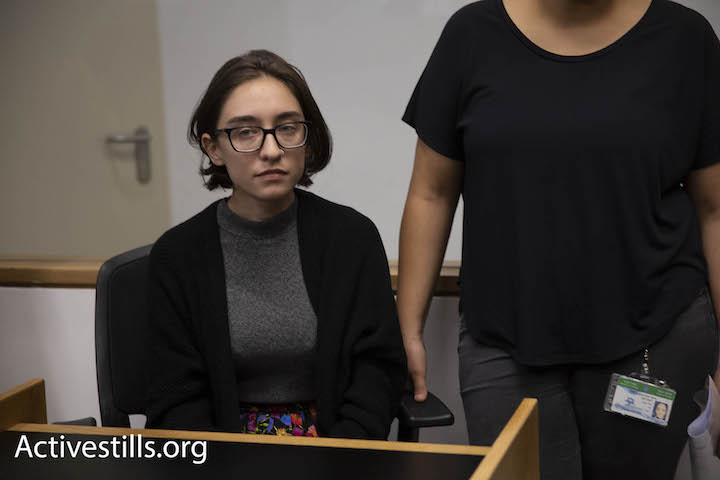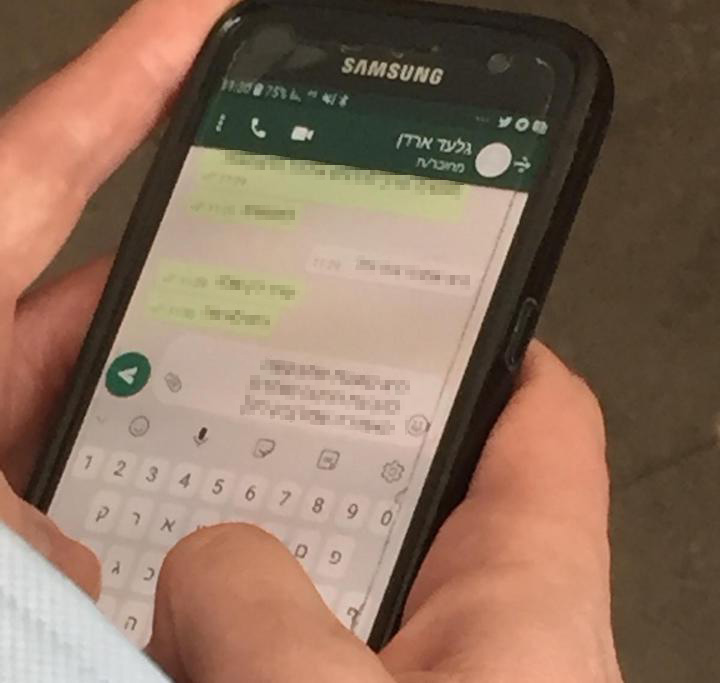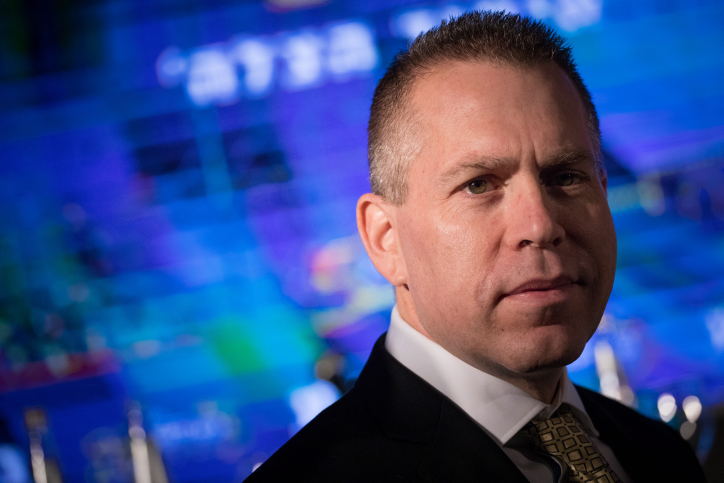According to the state, it is enough that Lara Alqasem clicked ‘attending’ on pro-Palestinian Facebook events to prove she is pro-BDS.
By Edo Konrad and Oren Ziv

A Tel Aviv District Court ordered Lara Alqasem, the 22-year-old Palestinian American who was denied entry into Israel due to her political views and has been held by Israeli authorities for the past nine days, to remain in detention on Thursday.
Alqasem’s case has gripped both the Israeli and international media since she landed in Ben Gurion Airport, where she was promptly taken in for interrogation by the Israeli authorities. Despite having been issued a student visa to study at Hebrew University, border authorities ordered her deported for her alleged past membership in a student organization that advocates the boycott of Israel. On Thursday, the courtroom was packed with politicians, reporters, and photographers for Alqasem’s appeals hearing.
After hearing arguments from both sides, the judge said he would make a final decision on the case in the coming days, yet decided to leave Alqasem in Israeli custody. She has been in detention for a total of nine days.
Representatives from the Ministry of Strategic Affairs, led by Gilad Erdan, who is spearheading Israel’s efforts to counter criticism of and activism against Israeli policies vis-à-vis the Palestinians — particularly the BDS Movement — were present in the courtroom; reporters observed them communicating with Erdan on WhatsApp, while simultaneously passing handwritten notes to State Attorney Yossi Zadok, reflecting the minister’s deep involvement in Alqasem’s case.
At one point, one of representatives received a message from his boss, in which the strategic affairs minister wrote: “I hope that the judge knows our law.” Following the hearing, as Alqasem’s attorneys spoke to reporters, Chief of Staff and International Affairs Advisor to Minister of Strategic Affairs Asher Fredman was seen sending and receiving WhatsApp messages from Erdan, in which the two appeared to be coordinating their messaging to the international community.

Just days earlier, Erdan said he would consider letting Alqasem into the country on the condition that she recants her support for BDS. Last year Israel passed an amendment to its Entry Law, barring entry into the country for non-residents who publicly call for or support a boycott of Israel or its settlements in the West Bank.
Throughout the hearing, the state attorney and the defense argued over the criteria according to which foreign nationals can be barred from entering the country, and whether one’s beliefs are enough to get them kicked out. Attorney Yotam Ben-Hillel, who is representing Alqasem, argued that his client had ceased being a member of Students for Justice (SJP) in Palestine after graduating in 2017, and wondered how long one “is viewed as a BDS activist? Forever?”
State Attorney Tzadok responded that the authorities determined Alqasem was still active with SJP based on the fact that she had marked herself “attending” on Facebook for a number of events. However, Tzadok argued that because Alqasem had erased her Facebook profile prior to her arrival in Israel — what he called “well-known behavior” of BDS activists — he could not provide evidence to that effect.
In response, Ben-Hillel argued that many people, himself included, mark themselves attending many events, but that that does not prove they actually go. The state prosecutor provided not a single piece of visual evidence regarding Alqasem’s online behavior. “What has this country come to that border agents go digging through people’s computers to come up with so-called evidence as they try to enter the country?” Ben-Hillel asked out loud. “Not only did Lara erase her account, not only do BDS supporters do so, but also anyone who has even a trace of activism in their past, or activities deemed ‘un-kosher’ by the border agents at the airport. Even Israeli citizens erase their accounts. The question should be why they do this in the first place.”
Activists and journalists have for years taken the step of erasing their social media accounts before entering Israel. Alqasem’s detention, and Thursday’s hearing in particular, shed light on the Israeli authorities’ practices at its borders vis-à-vis those who are openly critical of state policies.
While Alqasem’s attorneys argued that she could not be denied entry based solely on her ideas and Facebook “likes,” Asher Fredman, an advisor to Erdan, tried to explain the Strategic Affairs Ministry’s decision: “We did not deny her entry based on her ideas or her signing petitions. The decision was made based on her actions, the evidence and the activities of the organization she chose to be part of and in which she held a top role.”
Speaking to reporters outside the courtroom, Fredman refused to respond to reporters’ questions, who tried to ask him how it was possible that Alqasem received a visa in the first place. He added that new evidence came to light over the past few days, yet it was not presented to either the court nor the press.
Throughout the hearing Alqasem, who is not technically under arrest, sat at the bench behind the attorney’s table, although she was not called up to give testimony. Sabine Haddad, a spokeswoman for the Israeli Population and Immigration Authority, told AFP that Alqasem was being held at an immigration facility but was not under arrest. But Alqasem has not been permitted to leave the facility, with only her attorneys and Israeli politicians allowed to visit.

Attorney Pepi Yakirevich, representing the Hebrew University of Jerusalem, joined Alqasem’s legal team in supporting the appeal against the deportation; Yakirevich tried to convince the court that the case is damaging to Israel’s image. The Hebrew University representative said that allowing Alqasem in to the country will allow her to “see that we are a democratic state, not an apartheid state. She will strengthen Israel’s reputation to fight BDS.”
The attorney further added that Alqasem’s case might deter future international students from studying in Israel. “One of our most important goals is that researchers and students who come here be exposed to life in Israel. To create an ideological and emotional connection to the state. When they come back, they will help us deal with attacks.”
At the end of the hearing, the judge told the courtroom that he would hand down a decision later, while leaving Alqasem in detention until further notice.
Unlike the vast majority of those who have been ordered deported at the Israeli border, Alqasem insists on remaining in detention and fighting the case. On Thursday, Ben-Hillel stated that the money for the legal fees is coming directly from her family, rather than any organizations or political parties. Regardless of the judge’s upcoming decision, it is likely that the case will make it to the Supreme Court.

